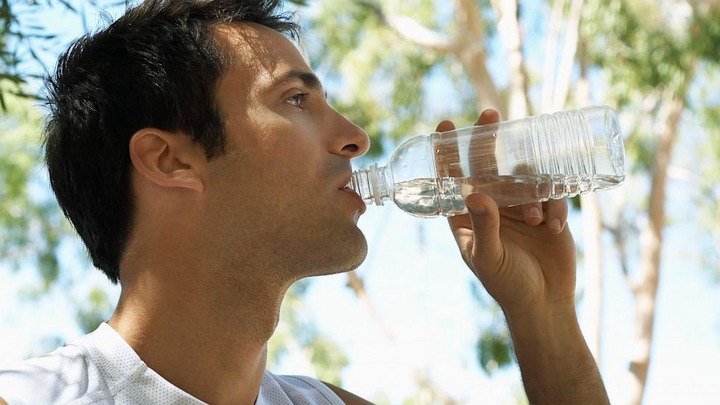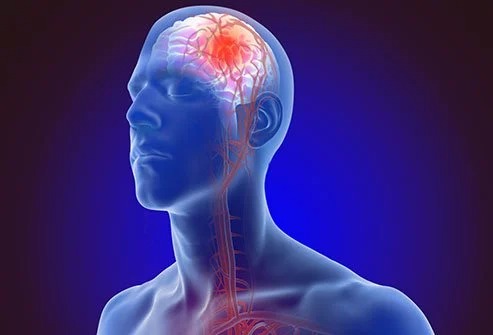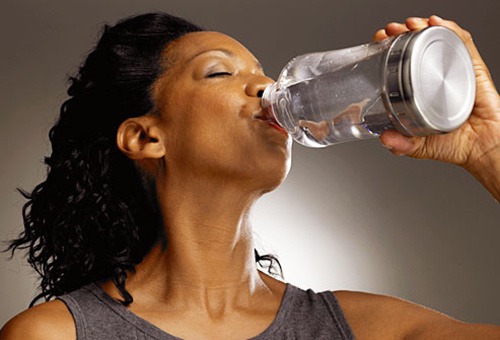Researches have shown that proper hydration at the time of a stroke is linked to better stroke recovery. it is of particular importance for those with, or at risk for, heart disease to consume a minimum of one cup of water for every 20 pounds of body weight daily. It is most important to forego the morning cup of coffee in exchange for a mug or two of water. This is the period of the day when our bodies are most dehydrated, as we do not consume any water while we sleep, as it is important to increase hydration as quickly as possible.
It is possible that dehydration causes blood to be thicker. A more viscous blood causes the body to retain sodium and furthermore increases the blood pressure, Drinking enough water regularly prevents dehydration. This therefore plays an increased role in keeping the blood less viscous, which prevents stroke.
However, this doesn’t mean overhydrating is a good habit as drinking too much water may be dangerous too, especially in people with heart and kidney conditions. Also, drinking water during stroke symptoms may cause choking, so caution needs to be exercised.
 Stroke may result from blockage of blood flow to the brain hereby restricting nutrients from reaching the brain, two types of stroke may result from obstruction of blood flow to brain areas, The Ischemic stroke and Hemorrhagic stroke.
Stroke may result from blockage of blood flow to the brain hereby restricting nutrients from reaching the brain, two types of stroke may result from obstruction of blood flow to brain areas, The Ischemic stroke and Hemorrhagic stroke.
Ischemic stroke occurs due to the formation of clots while hemorrhagic stroke results in bleeding of the brain due to vessel occlusions.
Some irreversible factors, such as age and family history, are likely to increase the risk of one having a stroke.
Water and Stroke Onset/Recovery
 An individual who feels a stroke might be coming on should seek immediate medical attention. Damage to irreplaceable brain cells begins as quickly as three minutes after the beginning of the stroke and in an attempt to restore the oxygen which flows to the brain, the body increases the size of the arteries around the area of the blockage. Also remaining well hydrated is a benefit because the blood is thinner, making it easier to pass oxygen around the blockage to the brain as this does not mean you should drink water at the onset of a stroke. Some stroke conditions include hemorrhagic bleeding are more complicated and may require immediate surgery and in these cases, it is better to not have water in the system to reduce the potential complication of aspiration under anesthesia, Most importantly seek medical advice from doctor.
An individual who feels a stroke might be coming on should seek immediate medical attention. Damage to irreplaceable brain cells begins as quickly as three minutes after the beginning of the stroke and in an attempt to restore the oxygen which flows to the brain, the body increases the size of the arteries around the area of the blockage. Also remaining well hydrated is a benefit because the blood is thinner, making it easier to pass oxygen around the blockage to the brain as this does not mean you should drink water at the onset of a stroke. Some stroke conditions include hemorrhagic bleeding are more complicated and may require immediate surgery and in these cases, it is better to not have water in the system to reduce the potential complication of aspiration under anesthesia, Most importantly seek medical advice from doctor.

 Entertainment6 days ago
Entertainment6 days ago
 Health1 week ago
Health1 week ago
 Health4 days ago
Health4 days ago
 Football1 week ago
Football1 week ago
 Football1 week ago
Football1 week ago
 Crime4 days ago
Crime4 days ago
 Education6 days ago
Education6 days ago
 Crime1 week ago
Crime1 week ago

